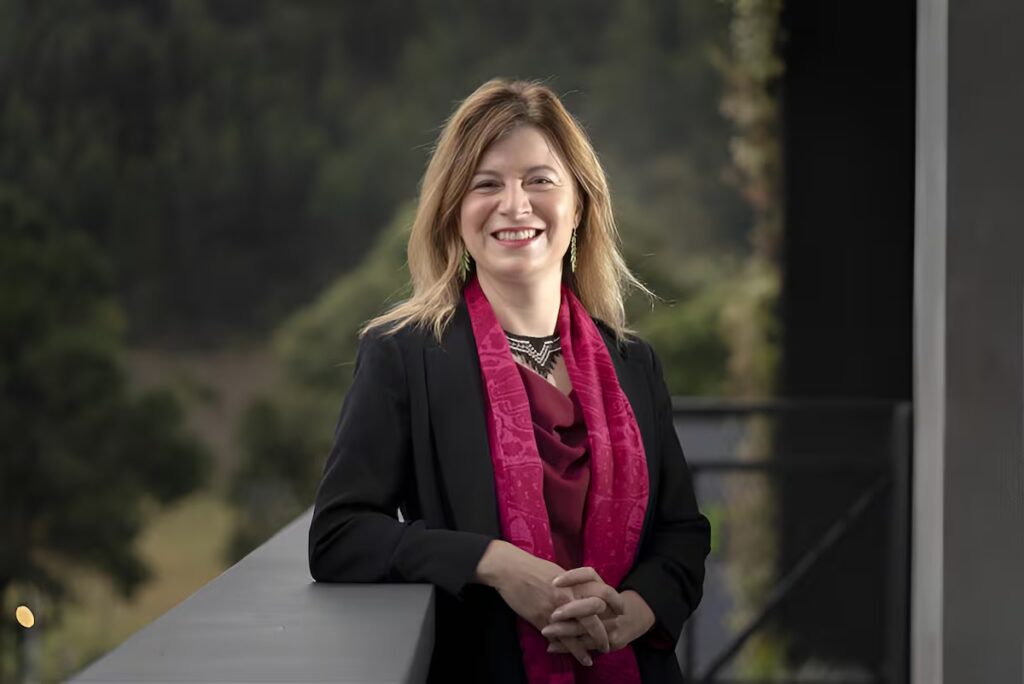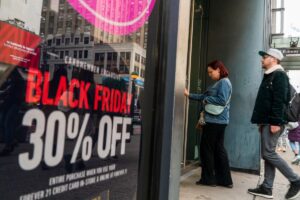
“It will take a political, economic or religious crisis for women’s rights to be called into question again.” UN Women’s new regional director for the Americas and the Caribbean, Bibiana Aído (Alcalá de los Gazules, Spain, 48), cites French feminist Simone de Beauvoir to assess recent attacks by some countries in the region against women’s ministries. In recent years, Argentina, Panama and Ecuador have eliminated these departments under the guise of cutting public spending, despite the enormous challenges faced by half the continent’s population. Gender-based violence remains an emergency: in 2023, 3,897 women were victims of femicide in Latin America and the Caribbean – at least 11 women died every day simply for being women.
In the most unequal region in the world, poverty often affects women disproportionately. And, on the contrary, they are underrepresented in politics: only 35.8% of parliamentary positions are held by women. “Challenges exist in different areas because many gaps remain,” acknowledges Aído in an interview with EL PAÍS. One of these gaps is political violence, a topic that interests her greatly. More than 17 years ago, when she was appointed Spain’s first equality minister at just 31 years old, she realized she had become “a target of the patriarchy simply by existing.” The difference, he says, is that at the time he didn’t even know how to identify that type of violence. “You normalized it in a way. It was like the price of being in politics. You had to endure it, receiving insults every day. Today, fortunately, I think we have been able to discuss and reflect on this much more, and Latin America is becoming a point of reference and a beacon, with laws that specifically address political violence and with political participation strategies that include elements for its prevention.”
Nearly two decades later, after holding various positions at UN Women in the Americas – from New York to Ecuador and Colombia, countries where she was a representative – she became the organization’s regional director in September.
Request. What are your main challenges in this new role as head of UN Women in this difficult time?
Answer. I think we are in a tremendously complex moment, characterized by multiple intersecting crises – economic, political, environmental and social, with high levels of polarization and insecurity – and with a backlash, a threat to the rights agenda in general and to the women’s rights agenda in particular. Faced with such a panorama, I think we have many reasons for hope. It is also the region that is advancing the agenda in the most sophisticated way, where debates are taking place, for example, on political violence, on the nexus between climate change, care and gender. It is the region capable of approving a commitment such as the Tlatelolco Declaration, signed at the Regional Conference on Women, which recognizes the right to care, to receive care and to self-care. I think it’s something very different, something that is putting the region at the forefront, making it a point of reference, a beacon for other regions of the world. I think it’s a region with a very strong regulatory framework, advanced in many areas, and with a very vibrant feminist movement and very interesting female leadership, not only at the national level, but also at the local level, which I think gives us a lot of reasons to hope and to believe that it is possible to not only stop the regression, but continue to push the agenda forward.
I believe that the priority is to continue to push forward an agenda that takes into account territorial and local issues. Change also starts from the bottom and we cannot lose sight of this. We need to focus strongly on intersectionality, particularly on women in situations of greatest vulnerability: Afro-descendant women, indigenous women, women with disabilities – because we are not all the same. Inequality has many layers, and the situation of highly educated white women who want to break the glass ceiling is not the same as that of women stuck on those sticky floors. Considering intersectionality will be crucial. And we must continue to mobilize funding and resources at a time when we know that multilateralism faces enormous challenges. At this time, when the winds are not as favorable as we would like for the agenda we defend, it is crucial to continue to build alliances among those who are committed, but also to try to engage those who are not yet convinced, to work more with men, because this is not an agenda of women against men, but rather an agenda of women and men against an obsolete, decadent and inefficient system that harms us all: the patriarchy. And we must continue to work in intergenerational, public-private networks, in alliances between international cooperation and the women’s movement. Networks are what sustain us. In difficult times, they are the ones who save us.
Q. Why is it important for men to be actively involved so as not to lose everything that the decades-long fight for equality has achieved?
TO. The fact is that feminism benefits society as a whole. It’s not about women versus men; I believe we need to talk about women and men against an inefficient system that causes enormous damage to all of us. And I think patriarchy has been smart to try to create divisions, to deepen existing gaps, or to tell kids, especially younger kids, using social media, that feminism harms them when, on the contrary, feminism also benefits men, and patriarchy is its real enemy.
There was a very interesting moment with a diverse and cross-cutting feminist movement in the streets, with women of different generations and men coming together. I think that created fear, and they were smart to develop strategies to try to stop the clear progress that was coming. However, we must not give up. I think that feminism, as a historical movement, has achieved something unimaginable in all this time. We have to see it in perspective, because sometimes we say, “Well, we’re in a time of regression.” Yes, but what progress has actually been made in recent decades? It’s amazing how women have increased their education. Today, more and more women are graduating from college, en masse entering the world of work and holding leadership positions…
Q. Within the region, if we talk about setbacks, are there any countries that particularly worry you?
TO. I wouldn’t mention any specific country, but it is more important than ever to have data, evidence and work with concrete statistics that allow us to demonstrate how gender equality is good for countries: from an economic perspective, in terms of democratic development and in terms of more efficient and fairer societies. Let us not fall into the absurdity, as some would say, that this agenda should not be so politicized, since it is positive from every perspective. I’m more afraid that authoritarianism and conservatism will use it as a weapon when gender equality is good for societies and good for all cities and countries, and I think we have the evidence and the data to continue to educate people about this.
Q. The UN is dedicating its week of action on November 25 to digital violence. What does it consist of?
TO. Digital violence is real. It’s not something that only happens on social media. Between 90% and 95% of all online deepfakes target women. According to recent surveys and studies with UNESCO, 70% of women report having experienced some form of violence, including sexual violence, on social media. It’s time to raise awareness and promote online non-violence, highlighting the impact it has on lives, especially for teenagers and young women, and its association with very high levels of bullying and suicide. The idea behind this campaign, the “Join Us” strategy and the 16 days of activism is to give visibility to the statistics on this reality of digital violence and call on governments to act, adopt public policies to prevent it and work with the platforms themselves.
Unfortunately, I think we are far behind, even by international standards, in this field, which is advancing at a much faster pace. And let’s not even get into the world of artificial intelligence and algorithms, which are still largely dominated by men. We need to change this too and try to increase the number of women in decision-making roles in the world of artificial intelligence. Women currently only make up about 30% of STEM (science, technology, engineering and mathematics) fields. It is also essential for us to support greater participation of women in the development of solutions.
Q. The Mirabal sisters, Latin American women tortured by the Dominican dictator Trujillo, inspired the International Day for the Elimination of Violence against Women. Who inspires you within the Latin American feminist movement?
TO. I learn from all of them every day. It is an inspiring, diverse, but not dispersed feminist movement. When they know they have a goal, they are able to unite until they achieve it. A transformative feminist movement that, despite the pressures, does not remain silent, and this is important because it continues to move forward, pursuing transformations; a movement that has managed to give visibility to issues such as gender violence with campaigns such as Ni Una Menos (Not one less) or the green scarves, for example, with the issue of the right to abortion in the case of Argentina. It is a movement that inspires and a movement that takes action, which has clear objectives and plans strategies until those objectives are achieved. In this sense, I learn from them every day the ability to generate strategy and that here no one gives up, that it is always possible to continue walking together.
Sign up to our weekly newsletter to get more English-language news coverage from EL PAÍS USA Edition





